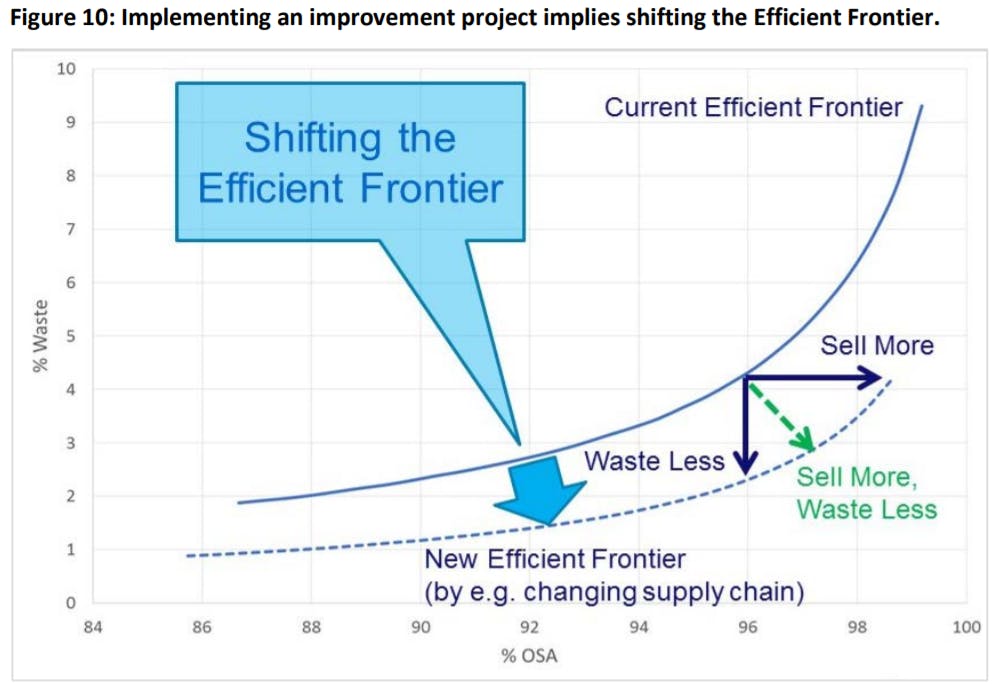OSA Service Level Differentiation as a strategy to sell more and waste less
Date and Time:
June 23rd - 1pm UK
Location:
Virtual
23 Jun 1:00 PM
Organisers:
Asst Prof Karel Van Donselaar & Rob Broekemeulen, Eindhoeven University
Description

In our initial ECR research (click here) on food waste, we highlighted the different interventions that could shift the efficient frontier (see image below) to the right. The research called out the opportunity to reduce the minimum case size shipped from the DC and the addition of one extra shelf life day to the products. Both gave impressive results, however both required a degree of collaboration with external parties, which inevitably made them harder to deliver.
Also highlighted in the ECR research, and perhaps easier for retailers to execute as it requires less cooperation with others, was the concept of OSA service level differentiation, where the OSA targets for some items in the assortment, such as the slow sellers, were set to be lower than others in assortment, such as the fast movers. In the modelling, by setting the OSA at 3% lower for the slower sellers and 3% higher for the faster movers, a 13% improvement in food waste was predicted.
In practice, we have already seen the benefits of OSA service level differentiation strategy evidenced in the Meny bakery case, where the Category Manager intentionally planned for many of the 50 sku's in her bakery assortment to only be available in the morning, with a plan for those items to be out of stock in the afternoon. Recall in this case study, she reported that their end to end approach (they also looked at production planning, etc) delivered a 34% reduction in waste with no sales reduction, the OSA service level differentiation strategy was a major contributor to these impressive results. Click here to read an overview of this session and to request the slides and recordings.
In this session you will hear from the academics about the impressive results they have been able to model using service level differentiation, the group will then discuss these findings, sharing how retailers in the group are / are not leveraging service level differentiation as a strategy, and the categories that are most advantaged to this strategy beyond bakery.
This working group is for retailers, producers and academics only.
Main office
ECR Community a.s.b.l
Upcoming Meetings
Join Our Mailing List
Subscribe© 2023 ECR Retails Loss. All Rights Reserved|Privacy Policy
